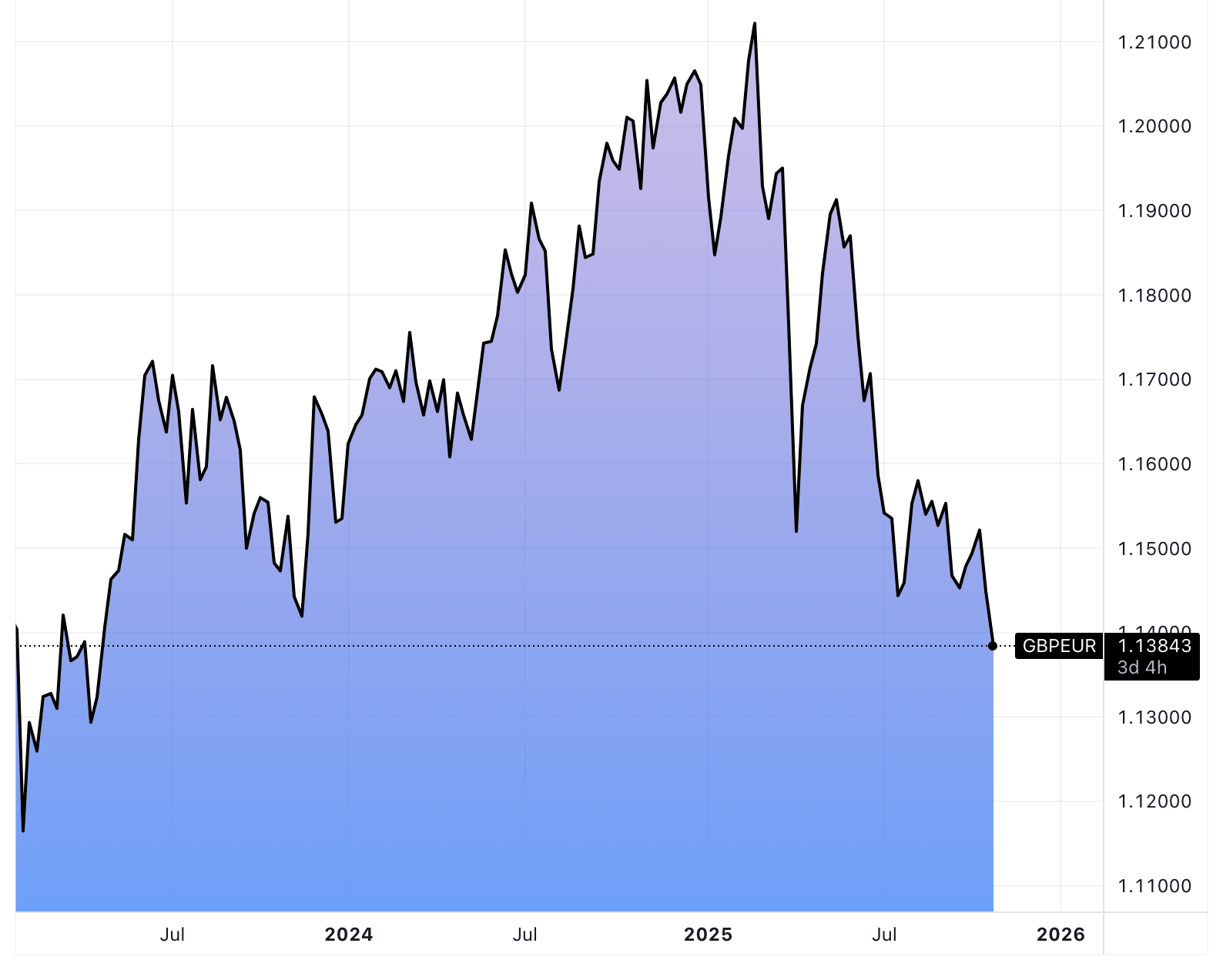
The pound has fallen to its lowest level in more than two years against the euro.
It hit €1.1376 on Tuesday, a level last seen in May 2023, owing to a daily half-per cent decline.
The fall is linked to an FT article in which it is confirmed the Chancellor will need to find at least £31BN in tax rises on November 26 when she announces her budget.
The concern is that the Chancellor won't be able to hit that target, leading to a further deterioration in the UK's finances.
"It is our central view that GBP will continue to edge lower vs the EUR into 2026," says Jane Foley, Senior FX Strategist at Rabobank. "The pound is on the back foot again vs. the single currency."
Those with GBP into EUR payments are welcome to contact our payment desk for advice on how to proceed.
Foley says there were two pieces of fresh UK news this morning:
1) The report from the BRC showing a softer than expected 1.0% y/y rise in its shop price index. This could be taken as an encouraging sign by BoE policy doves, which would be a negative factor for the pound.
2) The FT report regarding the OBR’s forecast on UK productivity. While the market has been expecting a downgrade in the OBR’s forecast for some time, the FT report suggests that this will be greater than expected at 0.3 ppts.
"Using the assumptions of the IFS think tank that each 0.1 ppt downgrade in productivity will increase the size of the UK’s fiscal black hole by GBP7 bln in FY29/30, the FT report provides a heavy dose of gloom ahead of the budget," says Foley.
Strategists at Nomura, the global investment bank, reacted to the FT article, saying, "UK fiscal risks remain a challenge."
They reiterate a long EUR/GBP trade that profits on further GBP weakness against EUR.
